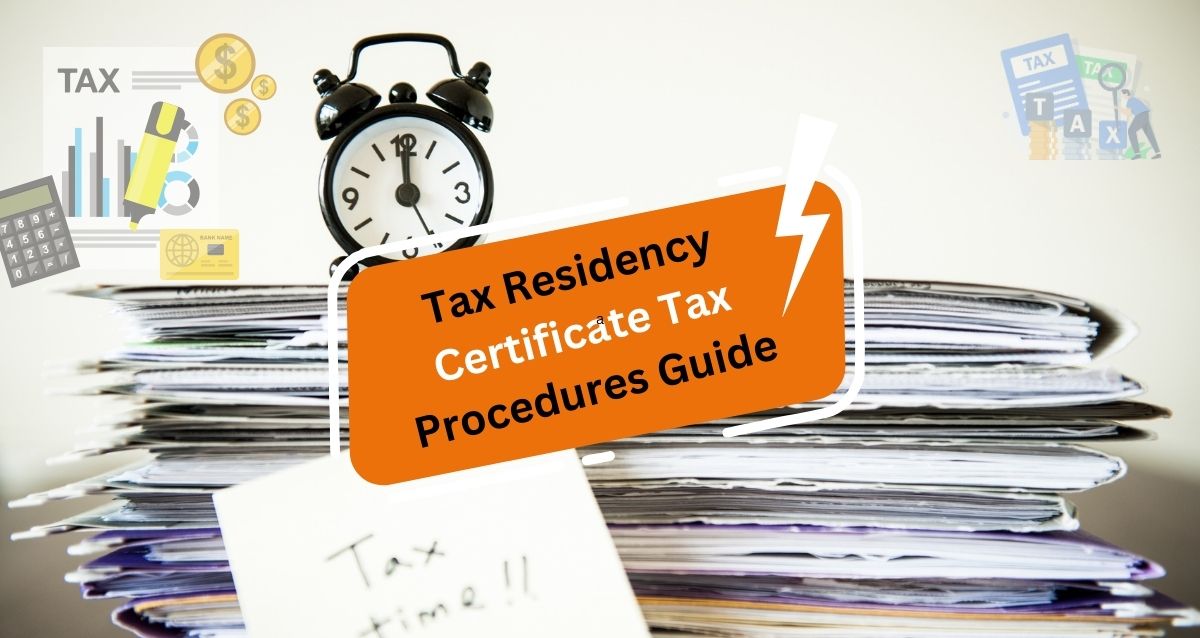Key points in Tax Resident and Tax Residency Certificate Tax Procedures Guide | TPGTR1
UAE Federal Tax Authority published a Tax Procedure Guide (TPGTR1) on 18 October 2024 which has outlined and clarified many questions relating to Corporate Tax, Tax Residency in UAE and Tax Resident Certificate in UAE. The new guide is aligned with the Tax Residency with Corporate Tax Law implemented in UAE with effect from 01 June 2023. In this article, let us understand the key concepts or updates mentioned in the Tax Procedure Guide.
➦ Civil Company
Article 4.1.1 has clarified that civil companies are considered as juridical persons for Corporate Tax purposes. It has always been a question among investors whether civil partnership companies are juridical persons or natural persons for UAE Corporate Tax purposes. Through the Tax Procedure Guide, FTA has given clarity that civil companies are juridical persons. Flyingcolour has written an article before regarding the civil company corporate tax status Read more.

➦ Offshore company
Offshore companies can be formed in the UAE mainly in 3 jurisdictions which are;
- Ras Al Khaimah International Corporate Center (RAK ICC)
- Jebel Ali Free Zone Authority
- Ajman Free Zone authority
Due to the limitations of offshore companies' operations in the country like opening an office, doing business in the local market, obtaining employment visas etc., it was always an ambiguity whether offshore companies are subject to UAE Corporate Tax or not. The recent Tax Procedure guide clarified that offshore companies are considered juridical persons for Corporate Tax purposes.
Key Note: -
- The Corporate Tax registration deadline, Corporate Tax liability, Corporate Tax reliefs etc. can be different from juridical person and natural person.
- Currently, the Federal Tax Authority is not allowing offshore companies the tax residency certificate in order to avail of the Double Taxation Treaties (DTTs) signed by UAE. With new clarification through the Tax Procedure Guide, by clarifying Offshore Company as a juridical person who will pay Corporate Tax in UAE for their worldwide income, will the authority consider offshore companies also for applying for and obtaining a Tax Residency Certificate in the UAE?

➢ UAE Branch of a foreign company
Multi-national companies are always keen to set up their branches or representative offices in the UAE as part of their business expansion and to take the advantage of UAE market and global access. In the UAE Corporate Tax Law, the branch of a foreign company is considered a Permanent Establishment of a foreign company in the UAE. In the Tax Procedure Guide, it is emphasized that the UAE branch of a foreign company is not eligible to obtain the tax residency certificate in the UAE. This includes the branch of a foreign company setup in any of the UAE Free Zones.
➢ Place of Effective Management (PoEM)
Article 11 (3) (b) of UAE Corporate Tax Law explains that a foreign company which is effectively managed and controlled from the UAE is considered as resident for UAE Corporate Tax purposes. Through the new Tax Procedure Guide, FTA has well explained the concept of Place of Effective Management and the methods to determine the PoEM for a foreign company.
There are 3 methods written in the guide which are as below:-
- Board of Directors’ test.
- Delegation test.
- Shareholder activity test.
➢ Foreign Tax Credit
The Tax Procedure Guide has given clarity on the foreign tax paid in a foreign country by a UAE company whereby UAE has no Double Taxation Treaty with that country. It is clarified that Foreign Tax Credit relief is unilateral and companies in UAE can take the credit of taxes paid in a foreign country even if there is no DTA signed between UAE and that country.
➢ Foundations and Trust
Article 5.1.1 of the Tax Procedure Guide outlined that Foundations and Trusts are considered as juridical persons for Corporate Tax purposes. Even though family foundations are by default considered as juridical persons (Opaque vehicles), subject to conditions, family foundations can apply to FTA to treat it as an unincorporated partnership. Once FTA is approved, the family foundations can obtain the benefits which are equal to a natural person. Do you want to know more about corporate tax for family foundations, read here.

➢ Period for Tax Residency Certificate
FTA had stopped issuing tax residency certificates for the future period. This means, that while applying for the tax residency certificate, the end of the TRC must be a past date. At least for a few companies in UAE, this was causing trouble since many countries require the TRC which is valid on the current date of transaction.
Chapter 7.2 of the Tax Procedure Guide has given the details that the tax residency period can be the current tax period or the previous tax period. If we understand well, the companies can apply for the TRC after 3 months from the start of the tax period for the tax year. For example a company follows January to December as the Corporate Tax period on 01 April 2025 or later, they can apply for a tax residency certificate for the year 2025. This will be a big relief among business owners.
Still, FTA insists that a company cannot apply TRC for a tax period which is not started.
➢ Tax Residency Certificate fee
Currently, the companies which are VAT registered pay AED 500 to get the TRC. Non-VAT registered companies are required to pay AED 1750 as the fee for a Tax Residency Certificate. Through the new Tax Procedure Guide, FTA pointed out that the requirement of VAT registration is replaced with registration under Corporate Tax. This means, in future, the companies which are registered under UAE Corporate Tax can get the benefit of reduced fees for TRC.
To learn more about Tax Residency Certificate Tax Procedures Guide, book a free consultation with one of the Flyingcolour team advisors.
Disclaimer: The information provided in this blog is based on our understanding of current tax laws and regulations. It is intended for general informational purposes only and does not constitute professional tax advice, consultation, or representation. The author and publisher are not responsible for any errors or omissions, or for any actions taken based on the information contained in this blog.
